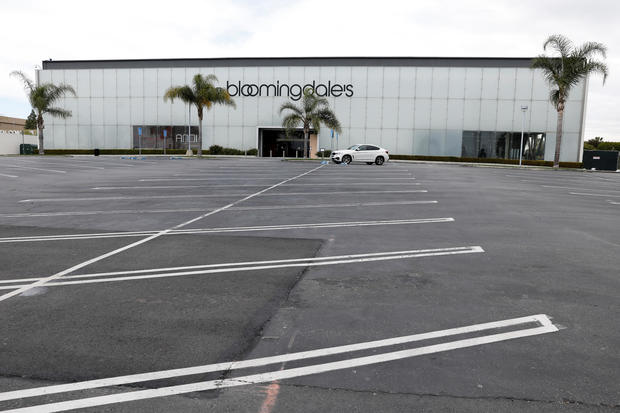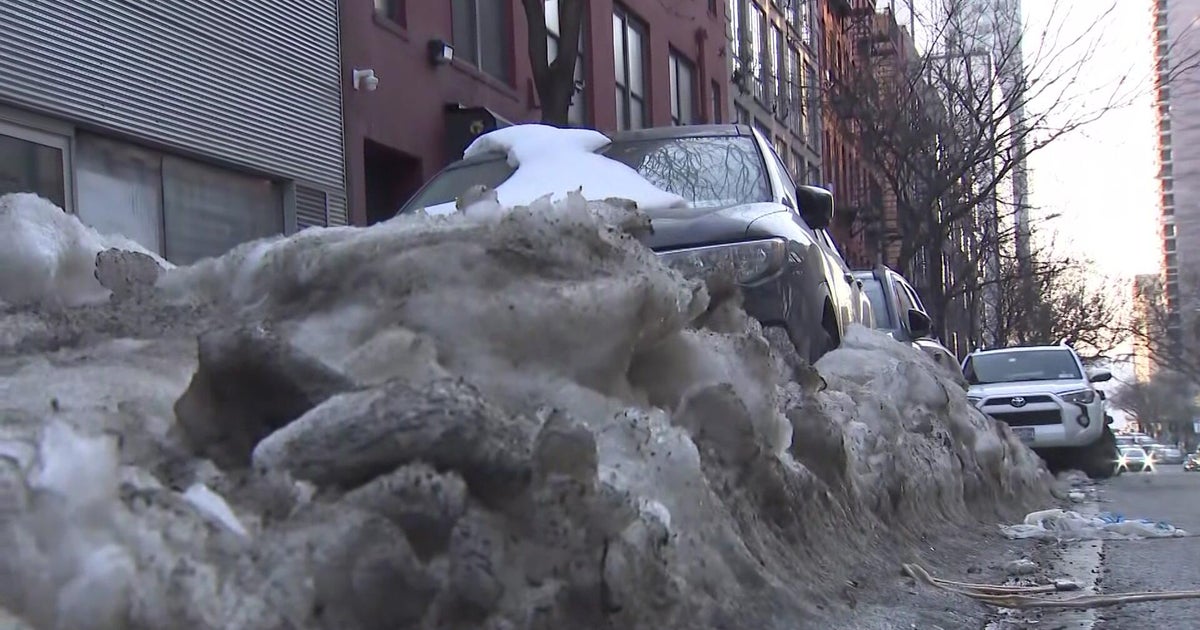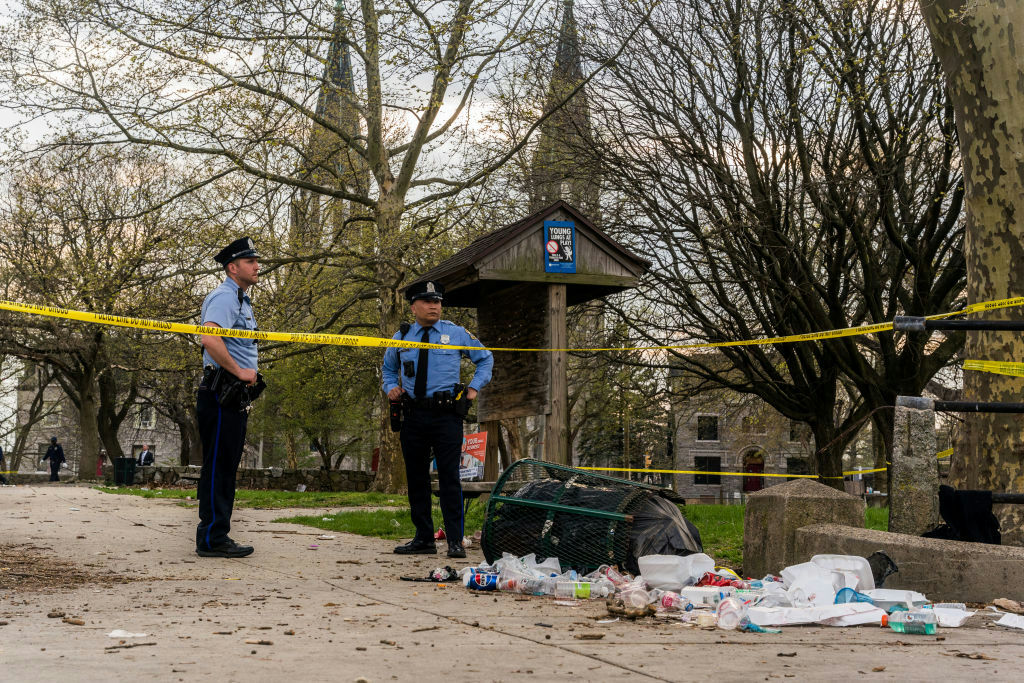U.S. retail sales plummeted as the nation entered a lockdown
U.S. retail sales plummeted 8.7% in March, an unprecedented decline, as the coronavirus outbreak forced an almost complete lockdown of commerce nationwide.
Auto sales dropped 25.6% and clothing store sales dropped 50.5%, the U.S. Commerce Department said Wednesday. Restaurants and bars reported a nearly 27% plunge. The decline far outpaced the previous record of 3.9% from the 2008 Great Recession, and industry analysts said they expect even greater drops in coming weeks.
U.S. consumer confidence has slipped and the vast majority of Americans are hunkered down at home under shelter-in-place orders. Consumer spending drives two-thirds of the U.S. economy, and the record drop in retail sales is a symptom of the sharp recession that most economists believe the U.S. has already entered.
"With clear signs of panic buying of necessities and the fact that lock downs were introduced only around the middle of the month means that far worse is to come in April and the second quarter more generally," said Michael Pearce, an economist at Capital Economics, a consulting firm.
Two retail categories have bucked the trend. Grocery store sales jumped by nearly 26% as Americans stocked up on food and consumer goods to ride out the pandemic. Online shopping rose 3.1%. The Commerce Department report didn't include spending on hotel stays, airline tickets or movie theaters, all of which are suffering some of the most severe financial duress.
The pullback in spending is intensifying the problems facing brick-and-mortar retailers which were already struggling with online competition.
The pandemic is putting clothing retailers in peril while increasing the dominance of big box stores that have remained open to sell essentials like food and household goods.
Cutting executive pay
Department stores and mall-based chains have cut executive pay, suspended cash dividends and stock buybacks. They're also drawing down credit lines to make sure they have cash on hand.
J.C. Penney is reportedly exploring bankruptcy after temporarily closing its 850 stores last month because of the pandemic. Neiman Marcus is edging its way closer to bankruptcy, according to reports. Nordstrom said it doesn't know when it will be able to reopen its physical stores and that prolonged closures could cause it to become financially distressed. Ralph Lauren and The Gap said they have stopped ordering products for the fall.
Meanwhile, Walmart and Amazon are on hiring sprees to try to meet surging demand of shoppers buying online or from curbside delivery.
More than 250,000 stores – including Macy's, Nordstrom and Nike – which sell non-essential merchandise have been shuttered since mid-March. That's 60% of the U.S. retail square footage, according to GlobalRetail Research.
Analysts at Oxford Economics said the commerce department report "is just the beginning of the consumer pullback and points to a massive collapse" in people wanting to spend money between April and June.
Grocery stores and online retailers likely won't see the same sales increases in April, said Neil Saunders, GlobalData's managing director.
"The whole month looks like it will be a write-off for retail, with stores remaining closed for the duration," Saunders said in a statement. "Panic buying has now largely subsided and will not lift sales to the same degree."




